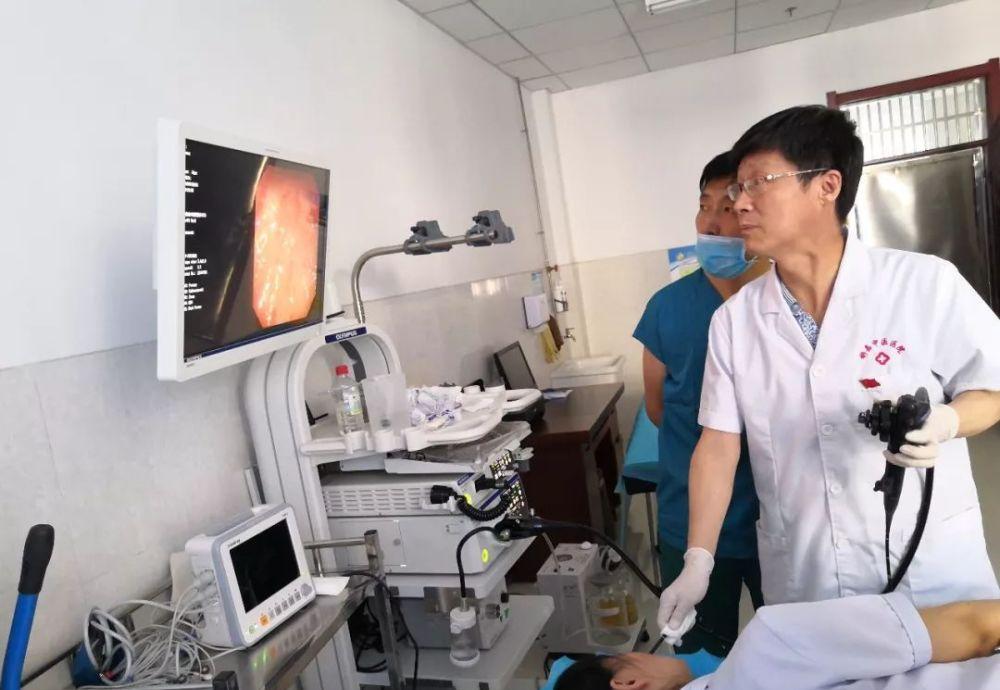Anyone who has studied anatomy knows that there are two "holes" in the stomach of a person, namely the cardia and the pylorus. After chewing, the food enters the stomach through the cardia. After the stomach becomes chymos, it is excreted into the intestine through the pylorus.
However, a gastroscopy a few days ago made Dr. Zhang of the anesthesiology department increase his knowledge: this patient's stomach, in addition to the cardia and pylorus, there is a third "hole"!

Gastroscopy, after careful identification, confirmed that the hole is not pathological, but should be congenital.
So, since it is congenital, what is this hole for? Where does it lead? A series of questions plagued everyone present.
Just as everyone was carefully searching for their own medical knowledge in the brain, the director of the endoscopic room spoke.
He said suddenly: I remembered, I have seen it many years ago when I was cultivating.
After that, he continued to do gastroscopy while telling us about the situation.
He said: The reason why I didn't think about it at the first time is mainly because there are too few such cases. At that time, there were many gastroscopes in the hospital for further study, many various diseases, and many special patients. Therefore, he did not react at the first time.
As an anesthesiologist, Dr. Zhang was suddenly troubled by this sudden illness. However, it is more about worrying. Perhaps, every anesthesiologist is neurotic. No matter what, think about safety.
Seeing this hole, he first thought: It won't be a stomach perforation, right? If it is a gastric perforation, there may be peritonitis. There is peritonitis, there may be septic shock, and perhaps emergency surgery is needed ...
Thinking of emergency surgery, he was more worried. This is because he is in charge of the emergency class, which is responsible for gastrointestinal endoscopic anesthesia and emergency surgery anesthesia. If the patient needs emergency surgery, he has to move the battlefield.
Fortunately, after hearing the explanation of the director of the endoscopic room, his worries quickly disappeared. It turns out that this situation is not pathological. It can be said that it is more of a problem of congenital development.
According to the director of the endoscopic chamber, this is the opening of a pancreatic catheter.
Hearing this explanation, everyone was shocked: shouldn't the opening of the pancreatic catheter be located in the duodenum? If the opening is in the stomach, can the stomach bear it? Pancreatic juice doesn't digest the stomach, right?
In fact, these worries are not superfluous. Because the organic matter in pancreatic juice is a variety of digestive enzymes, it can act on three food components: sugar, fat and protein. That is to say, pancreatic juice is not excluded from digesting the protein-based stomach!
The director of the endoscopic room immediately felt everyone's doubts and concerns, so he continued to explain: everyone don't have to worry, such people generally have two pancreatic catheters. This root in the stomach is generally secondary. Even if it is functional, it can secrete very little pancreatic juice.
Immediately after, he extended his explanation: In fact, pancreatic juice does not play a real role in the stomach. That is to say, pancreatic juice to digest proteins also requires a special environment. The component of the "digested" protein in pancreatic juice is trypsin. Trypsinogen needs to be activated by intestinal activator (incretin) to trypsin to function.
In addition, the resulting trypsin itself can also activate trypsinogen (self-activation), which explains why acute pancreatitis must be treated as soon as possible. Because pancreatic juice can indeed "eat" the pancreas itself. This vicious circle does not end, and the disease progresses rapidly.
Hearing these explanations, Dr. Zhang immediately felt that he had gained a lot. I thought to myself: Today's work is not in vain, I have learned so many things!
【Warm tips】Point to pay attention, here is a lot of professional medical science, for you to decipher those things about surgical anesthesia ~